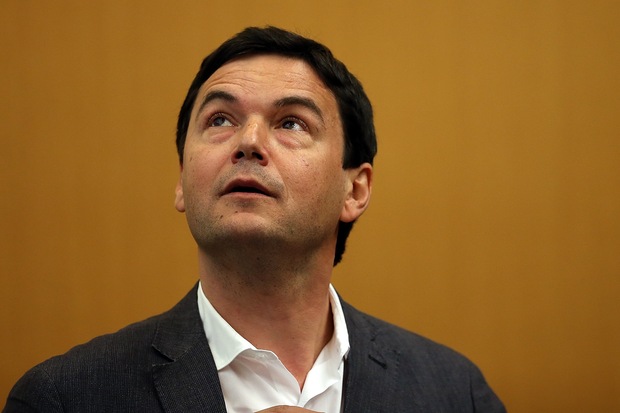Kudnani, H. (2015) “The return of the German question: why conflict between creditor and debtor states is now the defining feature of European politics“, LSE EUROPP, 26 January. One of the key geopolitical issues in Europe prior to the Second World War was how the power of Germany could be effectively balanced by other European states. Hans Kundnani assesses the relevance of these historical debates to the current situation …Read More
The ECB’s bond-purchase dilemma – German opposition to government-bond purchases by the European Central Bank is solidifying ahead of the programme’s likely announcement
Wolff, Β. G., Fratzscher, M. & Hüther, M. (2015) “The ECB’s bond-purchase dilemma – German opposition to government-bond purchases by the European Central Bank is solidifying ahead of the programme’s likely announcement“, Bruegel Institute, 21 January. German opposition to government-bond purchases by the European Central Bank is solidifying ahead of the programme’s likely announcement on January 22. Elections in Greece that could bring a government that will seek to …Read More
‘More Europe’ in 2015? For the EU, relevance on the world stage starts with common economic and security policies
Crowley, M. (2015) ‘More Europe’ in 2015? For the EU, relevance on the world stage starts with common economic and security policies, US News and World Report, 21 January. The new year brought news that in the third quarter of 2014 the United States experienced its strongest annual growth – five percent – since 2003. Meanwhile, the European Union stagnates, managing only a 0.2 percent growth rate for the …Read More
The European Union, Nationalism and the Crisis of Europe
Friedman, G. (2015) “The European Union, Nationalism and the Crisis of Europe“, STRATFOR, 20 Ιανουαρίου. Last week, I wrote about the crisis of Islamic radicalism and the problem of European nationalism. This week’s events give me the opportunity to address the question of European nationalism again, this time from the standpoint of the European Union and the European Central Bank, using a term that only an economist could invent: …Read More
We should be wary of removing the ECB from the troika to facilitate the use of outright monetary transactions
Otero Iglesias, Μ. (2015) “We should be wary of removing the ECB from the troika to facilitate the use of outright monetary transactions“, LSE EUROPP, 19 January. A key legal debate in the context of the Eurozone crisis is whether so called ‘Outright Monetary Transactions’(OMT), which would allow the European Central Bank (ECB) to buy unlimited numbers of government bonds in secondary markets, are compatible with European law. The …Read More
The fragmentation of power is irreversible
Conversation by Martin Eiermann with Parag Khanna: “The fragmentation of power is irreversible”, The European Magazine, 16 January 2015. The end of the nation-state as we know it: Parag Khanna discusses the path towards global connectivity and why we have to shift from Western history to global history. The European: Mr. Khanna, especially in Europe, we’re witnessing a resurgence of regionalist or nationalist thinking that seems to cast doubt …Read More
Calling the eurozone’s bluff?
Brzeski, C. (2015) “Calling the eurozone’s bluff?“, EU Observer Opinion, 14 January. Next week’s events have the clear potential to plant the seeds for another eurozone crisis. Not an immediate one with sharp market turmoil, but rather a creeping one: the sneaking and growing awareness that the eurozone is far from being perfect. On 22 January, the European Central Bank (ECB) will plant the first seed. It will be …Read More
How Japan Bankrupted Itself – Lessons For Europe, The story of Japan’s decline — and the lessons for Europe
Stelter, D. (2014) “How Japan Bankrupted Itself – Lessons For Europe, The story of Japan’s decline — and the lessons for Europe“, The Globalist, 19 December. Following the start of Abenomics in 2012, Japan moved back to the center of attention of global financial markets. After two and a half decades of economic stagnation, hopes were high that Japan would escape its long stagnation and deflation. Plenty of economists …Read More
Europe’s Misguided Investment Mania
Gros, D. (2014) “Europe’s Misguided Investment Mania“, Project Syndicate Opinion Page, 11 December. The mantra in Brussels and throughout Europe nowadays is that investment holds the key to economic recovery. The lynchpin of the new European Commission’s economic strategy is its recently unveiled plan to increase investment by €315 billion ($390 billion) over the next three years. But the Commission’s proposal is misguided, both in terms of its emphasis …Read More
Interview with Thomas Piketty: “The myth of national sovereignty helps big corporations screw us over”
Interview with Thomas Piketty: “The myth of national sovereignty helps big corporations screw us over”, The European Magazine, 12 December. French economist Thomas Piketty has put inequality back on the map and is being hailed as the Karl Marx of the 21st century. He talked to Max Tholl and Florian Guckelsberger about a globalization gone wrong, a Eurozone parliament and our obsession with economic growth. The European: Mr. …Read More








